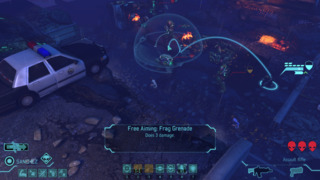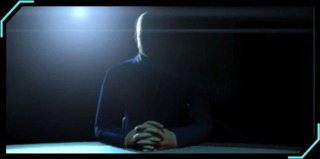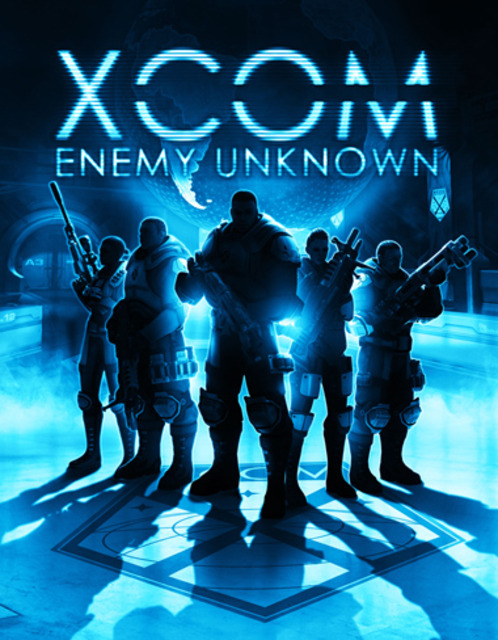Welcome to “Gaming Memories,” a blog series where I reminisce about my favorite video games. I will slowly but surely get to every game on the list, and speak to why each holds a special place in my heart. That not only means I’ll talk about why I think each is a great game that speaks to my tastes, but also where and how it affected me in a larger context. I hope you enjoy, and thanks for reading.
About halfway through my “ironman classic” run of XCOM: Enemy Unknown, I flirted with defeat. During a mission to save civilians from a chryssalid attack, as part of a calculated risk, one of my best soldiers ended up in enemy range. While the enemy attacked as expected, the critical hit my soldier suffered was unexpected, and it cost them their life. Also unexpected to me, the zombie that rose from my late soldier got to move and attack immediately, and downed a second soldier with another critical hit. The mission, which was already tense before these setbacks, now seemed doomed. Being an ironman run, however, I had no choice but to pick up the pieces and make the best of it. The rest of the mission was long, scrappy, and my soldiers took a lot of hits. But those four remaining heroes survived, and my run continued.

XCOM is a game that can be largely described through memorable moments such as this. In the big picture, it’s a fairly generic tale of a fight to stave off an alien invasion and save the world. But in its details, XCOM builds uniquely personal stories for every player, and the events of your story can be surprisingly resonant as a result. Your sniper who started slowly, but became nigh unstoppable by the final mission. The loss of your favorite assault after a heroic sprint to save civilians from a chryssalid swarm. A well-timed grenade that completed the mission just in time. Abandoning Europe after too many of its countries fell to the invasion, or lending South America a lifeline after a desperate Hail Mary mission. Its unscripted, emergent structure promotes such moments, which come together to spin unique, personal narratives for every run. XCOM embraces the interactivity inherent to the medium, and allows its story to form naturally around whatever happens: big or small, good or bad, every moment gets compiled into your tale of triumph and disaster. The result is that every move you make is full of exciting tension as it becomes a part of your story, which further lends extra weight and meaning to your play.
That’s one of my favorite aspects of XCOM: it’s about your personal story as you fight off the alien threat, and every facet of the game’s design supports this goal. At its core, said story is in large part about the soldiers under your command; you train them, command them on the battlefield, and strive to keep them alive as you push them to complete important missions. The fact that soldiers can permanently die, however, affects both mechanical and emotional angles of your story. These soldiers grow and become dramatically more powerful as you use them, and given the demanding nature of the game, it’s easy (and eventually necessary) to rely on your more experienced soldiers as your campaign unfolds. That introduces risk, as the death of a high level soldier can be a substantial mechanical setback. It can also be an emotional sting; I for one got attached to my soldiers as I saw them grow, and as their own stories became a part of mine. There’s a reason so many people name their soldiers themselves, be it after friends or other people they know (or in the case of my brother, after American presidents). But I also enjoy the game’s default, generated names, in particular the nicknames; 'Wolverine,' 'Zulu,' and 'Road Block' did good work in my campaign. No matter how you name them, these soldiers all play vital, memorable roles in your story. Seeing them grow into their own is gratifying. Seeing them die is heartbreaking.

Your story in XCOM is not only limited to the stories of the soldiers under your command, however. While much of your time is indeed spent directing them against aliens on the battlefield in XCOM’s excellent tactical skirmishes, nearly as much time is spent outside of those battles in its more abstract strategic layer. This is where the game’s real sense of urgency comes from, and where players’ stories can diverge even more. As you construct your base, and make crucial decisions on what buildings and research to prioritize, what countries to back, and what missions to take, everyone’s path to stopping the alien threat can look wildly different. Yet it all emerges naturally, the result of a series of challenging, in-the-moment decisions made in response to the particular semi-randomized threats you face (not to mention your own playstyle). XCOM does a great job at making the situation regularly feel desperate, which pushes you to make all sorts of interesting trade-offs. And critically, those trade-offs feed right back into the tactical layer, as the choices you make in your base have a clear impact on the battlefield, and vice versa; how well things go on the battlefield has a clear impact on your focus back at base. It’s an incredibly effective loop that makes it easy to become invested in every aspect of the game’s design as your story unfolds.
While I was too young to play the original X-COM, tactics games have always been a personal favorite of mine; I enjoy the particular brand of logic involved in making the most of my units’ abilities turn after turn. The magic of XCOM: Enemy Unknown, then, is how it combines those strong tactics with an equally strong strategic layer, and how both sides feed into each other in meaningful ways. It’s a mesmerizing concoction that feels fine-tuned for my gamer brain, yet it doesn’t feel dry and robotic either. Instead, XCOM leverages its smart blend of tactics and strategy for creating countless memorable moments, which come together to write unforgettable and personal stories. It’s a game that gripped me like few have, and remains a powerful example of what this medium is capable of.

Log in to comment